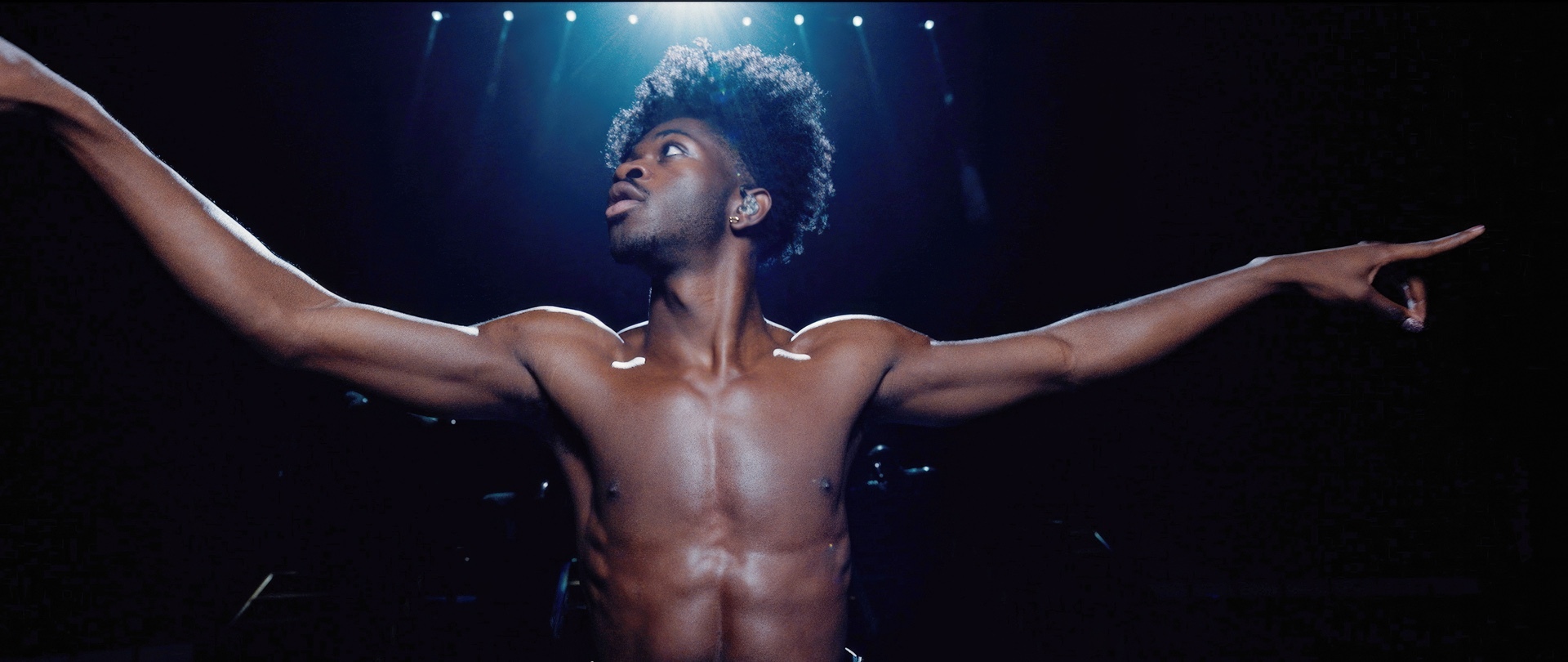Why It Matters That Detroit Is Featured in the New Lil Nas X Film
A rising Black queer singer-rapper contemplates his place in music history, right here in Michigan

It matters that Lil Nas X’s 2022 tour kicked off in Detroit, where the first third of the new documentary “Lil Nas X: Long Live Montero" takes place. In the film, now streaming on Max, we see Nas prepping for his first show, anxiety on high, in the historic Fox Theatre, and later a few musical selections from that first show. The first voices we hear from fans are queer Metro Detroiters proud of him for feeling seen and represented; this is probably the first time audiences outside the region will realize just how gay this area is.
Emphasis on performance and not letting the crowds down is a running theme throughout the documentary, and while Nas doesn’t say it, it does matter in a city like Detroit, where legends were made and audience expectations are high. Detroit is also one of the bigger make-or-break radio markets in the country, and our history of producing queer audience favorites — hello Madonna and Diana Ross – has landed us a permanent spot in gay canon. It’s also in Detroit where we see Nas engage with fans for the first time, and privately (though on camera) wonder where his career goes from here.
Embarking on the tour was historic in itself in furthering — or at least attempting to — Nas’ stature as one of the few, very few, out Black musicians in history who can have a career while publicly embracing their sexuality. There’s a moment midway through the film where Nas ponders the career of Little Richard, the pioneering rocker who leaned into femme-presenting aesthetics while also commenting on having male lovers, but infamously condemned homosexuality during his later years and essentially died back in the closet. Nas, who is seen in the film experimenting with makeup, femme clothing and other forms of expression throughout as he notes along the way his own doubts about wanting more femme presentation (he seems fearful of backlash), is only one of a few unquestionably queer Black pop stars in history, and perhaps the only one to reach his level.
Whether Nas' musical catalog can support this level of introspection is left to the viewer and totally dependent on where their fandom level is. On one hand, Nas does have the hits. “Old Town Road” is one of the great viral success stories, showing how an extremely online Gen Z’er can parlay 15 seconds into an actual career. Subsequent songs like “That’s What I Want” and “(Montero) Call Me By Your Name” were boosted by controversial imagery and marketing, at times overshadowing the songs themselves. On the other hand, everyone can agree that Nas’ career is new and still in its early stages, and his staying power is still in question.

It seems Nas, who is unabashedly self-aware and has never minded sharing this, knows this, which is why “Long Live Montero” instead leans into more personal moments than the music, unexpectedly giving us a rare coming-of-age story of a young Black gay man who is negotiating his newfound queerness both publicly and privately, and where he sits on the queer spectrum that can easily sideline someone in his position.
Nas’ closest counterpart in Black gay music might be the late disco queen Sylvester rather than Little Richard. Sylvester isn’t mentioned here, but he’s one of a few that can be tallied up in Nas’ position, or close to it. R&B singer Jermaine Stewart died from AIDS after a brief run, and neither Luther Vandross nor Billy Preston were out to their fans during their peak career years, and Billy Porter has commented in recent years on how staying closeted possibly hindered a would-be R&B career in the 1990s. Nas comments throughout that he knows he has to be a role model; there’s a sense that he’s reluctant to do so until he figures himself out.
Every Black gay man has gone through what Nas has at some point, which means there will be some emotional triggers in the film: He talks about God and religion, and early worries about Satan and hell, stopping short of saying (we’ve all said it, though) that he wished God could fix him. There’s an unspoken bit about body image; Nas is shirtless for much of the film, suggesting that he’s comfortable with that level of vulnerability. He talks about coming out to his family, a process in itself, but also wonders out loud if he’s being “too gay” around them. And then there is wanting to be gay while also being close to his family, particularly a young nephew who adores him as Nas teaches him a lesson in homophobia.
Few and far between are any kind of screenwork that features the interior lives of Black gay men, but there are some increased markers of progress. This week, Colman Domingo became the first out Black gay man to be nominated for an Oscar for playing a gay Black man in the biopic “Rustin.” The Showtime series “Fellow Travelers” featured Jelani Alladin and Noah J. Ricketts playing a Black gay couple throughout history alongside their white leads. “Montero” occupies rare air in that regard, and may, even if just a little, help open the door for more Black gay stories.









